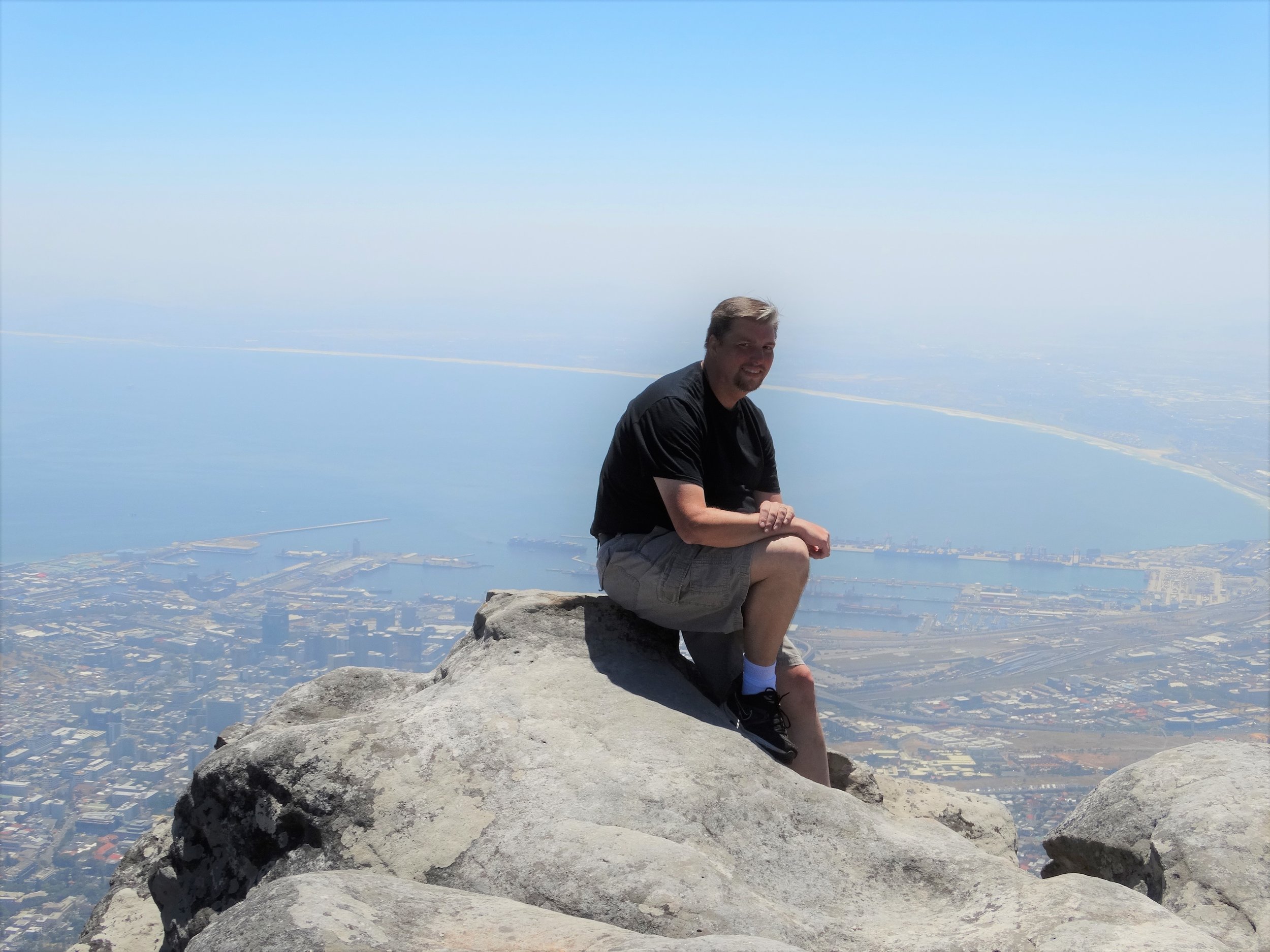HALF TRUTHS - PART 1
? Everything Happens for a Reason ?
Sunday, June 30, 2019
Romans 8:22-28
We know that God works all things together for good for the ones who love God, for those who are called according to his purpose.
Romans 8:28
Long before Twitter limited our communication to 140 or even 280 characters, Christians have attempted to distill the great mysteries of God and the universe into short catchy and memorable clichés and sound-bites. The result is what I like to call “Bumper-sticker Christianity” or “Street Theology.”
Adam Hamilton calls them “Half-truths” because these clichés often contain just enough truth to sound quite Biblical, but when taken to their logical conclusions they can be misleading and sometimes even hurtful or harmful to the faith of others. We will look at five of these so-called “Biblical” statements over the next few weeks beginning with one of the most common: “Everything happens for a reason.” Other variations on this theme include, “It was God’s will or God’s plan,” or “It was just God’s time.”
At best these sentiments sound like the bad advice of Job’s friends who try to explain away his suffering. At worst they make God out to be not only the author of tragedy, but perhaps even of sin.
God is sovereign, but God also created human beings with free will to make choices for both good and evil. To say that everything that happens is God’s will or God’s plan eliminates the possibility of human choice or responsibility. Consider the following examples as we move beyond this limited and un-scriptural explanation for human suffering.
Scenario 1: Natural Disasters
Two Christian families and next door neighbors pray for safety during a tornado warning. One house is demolished leaving the family with nothing while the house next door remains untouched.
Did God answer the prayers of one family and not the other? Did one family have less faith than the other? Did one family deserve this tragedy more than the other? When the family whose home survived says they were “Blessed by God”, does that mean that the other family is not blessed? Where was God’s grace and protection for them?
Natural disasters are called “natural” for a reason. God does not orchestrate such tragedy for some larger purpose beyond our understanding. Storms come. Sickness and disease ravages the human body and death will catch up with every one of us eventually. This is the nature of life in a fallen world. This is why we place our hope in eternity, but it does not mean that every bad thing that happens is part of God’s perfect will or plan. The truth is, some things “just happen.” The question is “how we will respond?”
Scenario 2: Shootings
School shootings have become all too common in our nation. If it is true, however, that everything happens for a reason, then what role does God play in these tragedies?
When an individual dies, we often say, “It was just their time.” Is that true for all of those children? Was it “just their time” all on the same day? Did God lead the gunmen to sin in order to fulfill that purpose? Did God allow these children to be sacrificed so others might “pray to be saved” when the gospel is preached at their funerals?
Clearly such implications are appalling. No matter how much we say that God’s ways are beyond our comprehension, there is no way that God’s goodness could be so radically different than ours to justify such horrors. Our sense of goodness, righteousness, and justice may be shadows of God’s wisdom and it is true that God’s ways are not our ways, but surely our good is not the opposite of God’s good. If we are made in the image of God, we at least have some sense of what is truly good and what is evil.
Evil is the natural result of sinful human choices. Attributing pain, suffering, and even evil to some inexplicable Divine plan implies that God led the perpetrators of such evil to sin and it removes our personal responsibility as we are called to bear faithful witness to the presence of God’s Kingdom on earth as it is in heaven. What other sins can we commit and simply respond by saying “The devil made me do it” or “It was God’s will anyway”?
Volumes of similar scenarios could be written to demonstrate the danger in chalking everything up to God’s perfect will or plan but we do not have the time or space here for such exhaustive reflections.
One final thought.
What do we do with the “good things” that do come as the result of horrible circumstances? When the nation came together in love and charity after 9/11 or when family members reconcile their long-held grudges in the face of a loved one dying from cancer, how do we respond? Did God cause these tragedies in order to bring about such good outcomes?
Not necessarily.
Romans 8:28 says that “all things work together for good,” but that does not imply that all things are caused or necessary in order to bring about that good. We cling to inexplicable reasons for every tragedy because we need our suffering to have meaning, but what if we have it backwards? What if the meaning and value of our suffering and tragedy comes not from its cause or reason, but from how we respond?
How is God strengthening us and leading us to grow in love and faith as a result of whatever happened? Do we harden ourselves in anger or do we grow even more urgent in our desire to pour out the love and mercy and grace of God to a hurting loved one and a broken world?
God works with us to bear good, meaningful fruit out of every circumstance, natural or sinful, but just like us, God grieves over the tragedy itself. God weeps with us in our loss and screams with us in our anger against evil and injustice.
The rain falls on the righteous and unrighteous alike. This is the nature of things. Perhaps the real question is not the reason or cause, but what meaning and goodness will grow in the softened and fertile fields of our hurting hearts and souls.
Not everything happens for a reason, but God can make meaning out of everything that happens.
In her book, “Everything happens for a reason and other lies I’ve loved”, Kate Bowler wrestles with the “easy answers” we so often give in the midst of tragedy and suffering. Her raw and honest experience of God’s truth in the midst of her own tragic circumstances calls us to consider how we might leave our easy answers and cliché explanations behind and instead be willing to sit with others in the midst of their grief and pain as a reminder of God’s healing presence through it all.
Check out her story in this video from TED Talks.
You can find her book on Amazon here.
Click here to listen to entire sermon series - “HALF TRUTHS”










